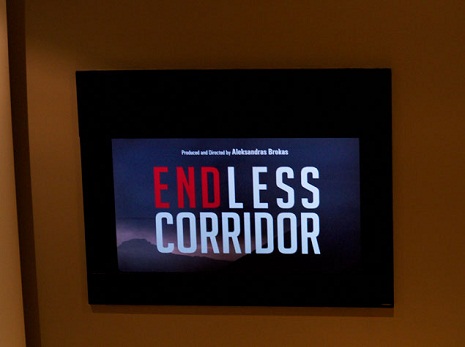The evening commemorated the victims of the Khojaly Massacre in 1992 – the worst single atrocity of the Armenian–Azerbaijani conflict over Nagorno-Karabakh – which claimed the lives of 613 civilian deaths in 1992. The list of those killed included 106 women, 63 children and 70 elderly people.
Speaking before the audience of over 200 politicians, VIPs, press representatives, members of the London public and Azerbaijani diaspora representatives, Lionel Zetter, Director, The European Azerbaijan Society (TEAS) explained: “Justice for Khojaly is an international awareness campaign initiated by Mrs Leyla Aliyeva. Since 2008, Justice for Khojaly has been active in more than 100 countries in raising awareness of the injustice in the Nagorno-Karabakh region. History is always open to debate and interpretation, but the events that occurred in Khojaly in 1992 did so in living memory. Two days ago, during the Ankara screening of the film you are about to see, I had the privilege to meet one of the survivors of that night, Valeh Huseynov, who is featured in this film. His wife was shot, and he was viciously tortured.
“Despite the passing of four UN Security Council resolutions against the invasion, Armenia continues to occupy Nagorno-Karabakh and seven surrounding districts to this day. Currently nearly 20 per cent of Azerbaijani territory remains occupied, and approximately 1 million refugees and internally displaced persons (IDPs) remain spread across Azerbaijan. The evening was dedicated to the memory of the Khojaly victims and those Azerbaijanis who have one wish – to return home. I hope that Endless Corridor will bring the prospect of Justice for Khojaly one step closer. Whatever it takes, and however long it takes, there will be justice.”
Aleksandras Brokas, the renowned Lithuanian cinematographer, editor, and director and producer of Endless Corridor introduced his film, saying: “Tonight’s film took five years to make. The name of the film is Endless Corridor, and was named when we started our journey going back 20 years. Our purpose was to tell a story in order that it will never be repeated. However, five years on, we see new wars and people are being killed again. We hope that this film will result in the avoidance of new wars and show politicians that they must make the correct decisions.”
H.E. Tahir Tagizadeh, Azerbaijani Ambassador to the UK, reflected: “Over 600 worlds were taken on that night, and honouring the victims’ memory brings back those worlds. It tells the story through very personal stories – such as the story of Valeh and the lady whose daughter was born against the backdrop of the conflict, and I thank the director for his work. Over the years, I have been frequently asked why the Khojaly Massacre remains an important topic in Azerbaijan, and whether Azerbaijan seeks retribution. We are not seeking revenge – we want to administer justice, and that is the only guarantor against repetition of such events. Justice for Khojaly is an excellent campaign, and helps to create a collective memory, without which a national mentality is impossible. This film is excellent, because it explains why the Khojaly Massacre took place, and gives some possible explanations. In my view, that is a step forward. I thank the entire crew of the film for their work, and for helping revive those 613 worlds.”



















































